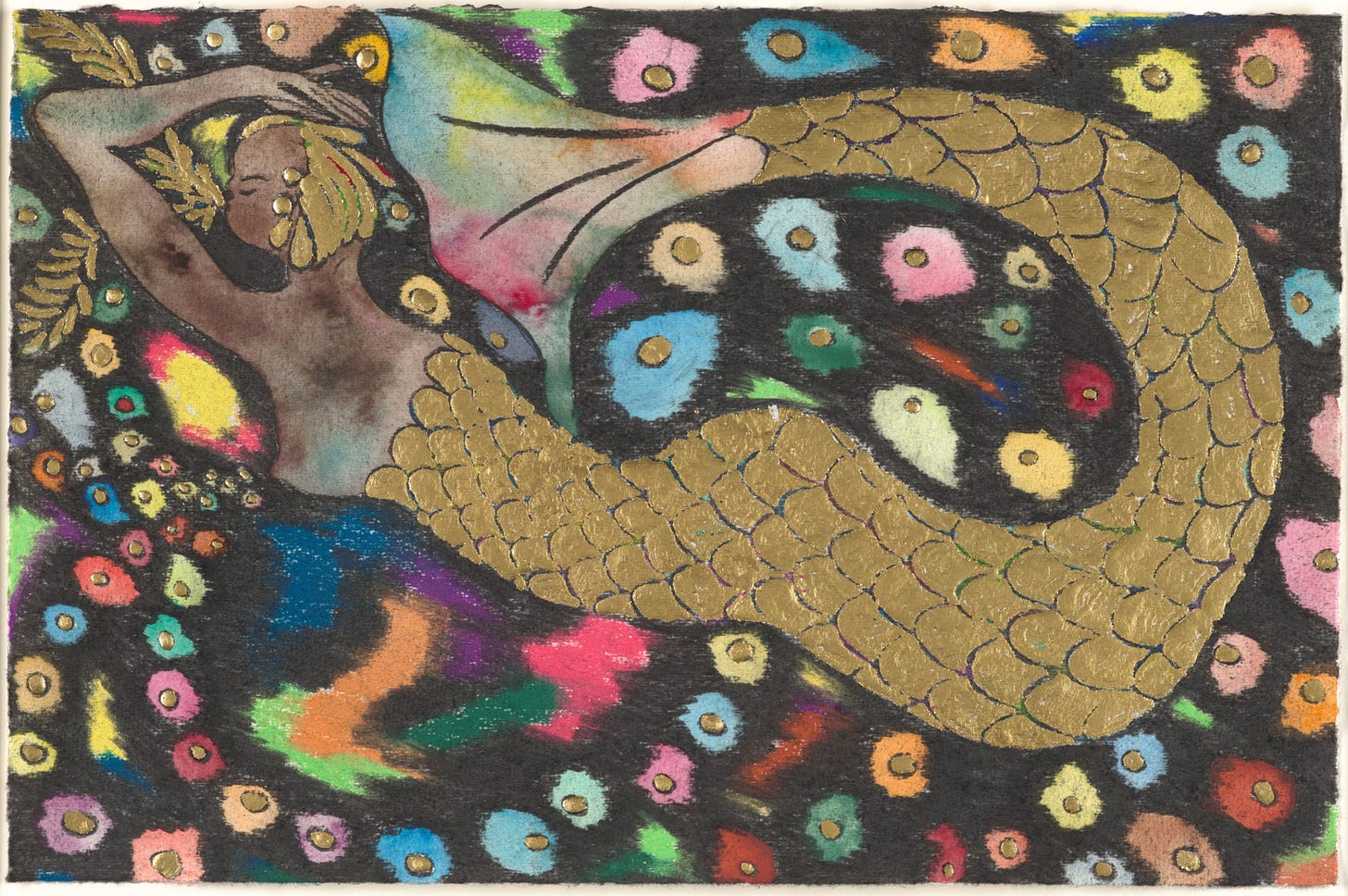The art of sensitivity
Being killed takes practice.
No. 131: The art of sensitivity
Rick Rubin, producer virtuoso and self-appointed ambassador of artists, said a thing.
I liked it, so I’m going to paraphrase, then extrapolate.
Artists are sensitive, not in the the standard sense of the word, but in the way they feel and react to moments, thoughts, and situations most people don’t notice at all. That sensitivity is what makes them attracted to, and good at, making things.
I agree.
From what I’ve seen in other artists and creatives, this checks out.
And from what I’ve seen in myself, this unequivocally checks out.
I take issue with things others assume standard. I’m deadly serious about things others find trivial. I’m enamored by things others find plain. (For example, on our way to a restaurant that was closing soon, Grace asked me not to do my usual 15 minute analysis of the ambience, people, decor, and vibe as soon as we sat down, something I didn’t realize I do but that causes major delays when the server comes and I haven’t looked at the menu.)
This is our strength as artists, but it’s also our weakness.
If sensitivity is what causes us to react to beauty, develop taste, and make attempts at creating beautiful and tasteful works, it’s also what makes our perceived failings feel like the end of the world.
We are like a child who finds a tiny ant, names it Franklin, and deems it the most perfect and unique creature in the world, only for some adult to step on it, laugh when we cry, then comfort us by saying, “It’s just an ant.”
It’s tough, because on the creation side of things, it’s best to let our sensitivity run free. But on the publishing side, it’s best to restrict and rationalize that sensitivity or risk being run over, flattened, killed.
And being killed takes practice.
For me, that practice has been consistently putting stuff out there regardless of the pain caused by artistic sensitivity. Over time, the sting is less and lessons are learned, things like: there will be flops, getting starting on the next thing halts overthinking about the last thing, art-making is a process and a bumpy one, being proud of your work is enough.
But there are also incorrect ways to practice managing this sensitivity, I think. Usually they involve the opinions of others at a time when the artist is far too inexperienced to hear them. Perhaps this is unavoidable, but it still sucks. This is one of the reasons I’ve come to question writing workshops and similar critique sessions, which tend to happen in college, at the very beginning of a writer’s career. The concept: pour your heart into a piece, then allow five other inexperienced, competitive, and sensitive writers to tear it to shreds. What could go wrong?
Again, at some point, the band-aid needs to be ripped off. But with such a set up, it’s not surprising that some quit after this first slaughter. That’s understandable. My fear is that they never come back, perceiving their sensitivity as an indication that they’re not cut out for it, an attitude enforced by some gross who say things like, “It’s just part of the game, man. Some can handle it. Some can’t.”
Please do shut the fuck up.
To feel a negative sensitivity toward our work is normal. It doesn’t make anyone less of an artist, but more of one. It’s okay to step away. But I hope they come back. Will there be more getting shot through the chest? There will. But it doesn’t have to be death by firing line. There are other, less gruesome ways to find your footing. It’s important to find what works for you.
The sensitivity never fades, but the painfulness of the “releasing work into the wild” step does, I think. This could be because of increased resilience, or because the artist, over time, closes what NPR radio host Ira Glass calls “the gap,” that space between what you’re aiming for, and what you actually produce.
In the beginning, the gap is huge, which is a source of pain. But over time? That gap closes. Your vision begins to come to the surface in the way you imagined it. Your dexterity with your body and soul as a tool for channeling art improves. Thus, less pain.
Does the gap ever close completely? Your asking the wrong person, but I’d venture to say no.
Still, the point stands.
Sensitivity is what makes artists great. Sensitivity also tends to suck.
But what’s the alternative?
Some feel nothing. Others feel everything.
You decide which of those is the gift. ♦
Weekly Three
HEAR: “La Pelea Con el Diablo” by Octavia Mesa Y Su Conjunto (YouTube)
READ: N/A - Still reading, and loving, The Red and The Black




Matt I'm so glad to see another post from you and it is a beauty, excellent as usual. I'm down in Morro Bay as I write this and just read your piece. Your "voice" hasn't lost anything in the interim but I know you've been busy pursuing other avenues of expression. I really enjoy you're short videos on instagram too but I always hav e to ask Christopher how to navigate and find things. Thanks for putting words to "paper" though, it will always be my first and true love. I hope I can find some motivation to do some writing now that I have more time. We shall see. Keep it up!
Such a good point about college being people's first exposure to really writing and then turning around and letting feral animals at their work. I have SO many thoughts about workshop!! I found it completely scarring almost every time. I have no solutions, lol, but I do think our sensitivities are some of our greatest strengths.